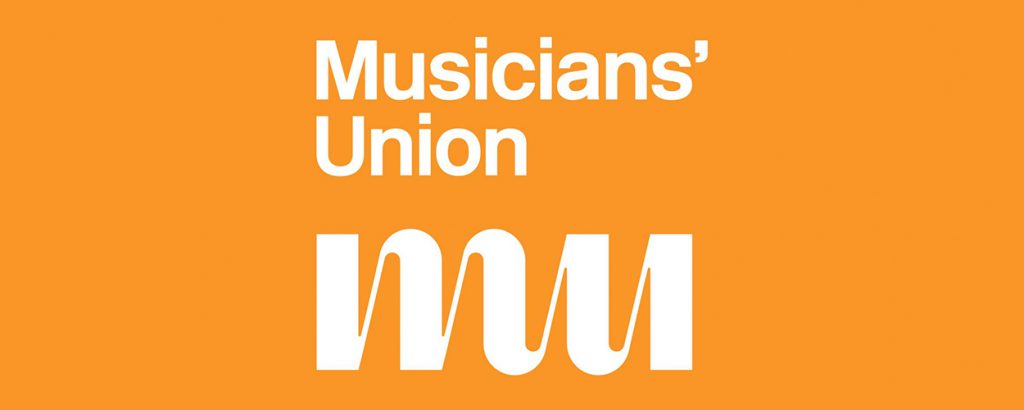This website uses cookies so that we can provide you with the best user experience possible. Cookie information is stored in your browser and performs functions such as recognising you when you return to our website and helping our team to understand which sections of the website you find most interesting and useful.
Business News Digital
Economics Of Streaming Perspectives: Musicians’ Union
By CMU Editorial | Published on Thursday 1 June 2023

Following the announcements this week about the ongoing UK government-led economics of music streaming work, we spoke to representatives from some of the organisations involved in that work to get their perspectives on what has been achieved so far and what should happen next.
This time Naomi Pohl, General Secretary of the Musicians’ Union. The MU is the UK’s trade union for musicians, and represents a wide-range of music-makers, including speaking for session musicians.
What do you think have been the most important aspects of the IPO led projects that were instigated after the select committee inquiry?
I think the process as a whole is beginning to shed some light on some issues that the industry has failed to address since music streaming took off and became the biggest source of revenue for record labels.
Personally I think the biggest issue is music maker remuneration. The vast majority of artists aren’t getting a fair deal, session musicians receive no streaming royalties, and songwriters’ money isn’t always reaching them because of data issues.
While we’ve made some progress on the last point, at least in principle, we have made no progress on remuneration overall which is why I am delighted we finally have a work-stream dedicated to that.
What do you think should be the priorities of the music-maker remuneration working group that is now being convened?
Essentially, we need to have a negotiation and achieve a better deal for signed artists as well as session musicians. We need to ensure fair pay for all music makers, regardless of when they signed contracts.
This isn’t just about music makers recording and releasing music now, it is about a deal that generates fair payments for those performers and creators whose works make up the vast catalogue of music that has been exploited on streaming services since they began.
The IPO has already undertaken research on the three copyright reforms proposed by the select committee – ie reversion rights, contract adjustment rights and performer ER. What is your current position on those proposals?
We are in favour of Performer ER or an equivalent system that guarantees royalties for all music makers on streamed music.
Any solution like that must be reciprocal with other territories because this is an international problem and we are fighting for a fair deal for all music makers. We receive streaming royalties from Spain, for example, so we need to collect royalties for their artists’ music streamed here too.
The research on reversion rights and contract adjustment is useful but we need to put these into action by agreement with the industry or in legislation. We can’t afford to fall behind other countries on this and at the moment we are.
There has been a lot of discussion of late about reforming the way streaming monies are allocated to individual tracks and catalogues. What are your thoughts on those discussions?
Well Universal Music are now talking about an artist-centric model of streaming revenue allocation.
They haven’t said what they mean by that exactly but surely an artist centric model would involve all artists actually being paid and not losing the majority of their income to platforms, labels and in the payment pipeline. And surely it would mean transparency around how money is allocated to tracks and why.
The data work-stream and new code should help because royalties should find their way to the right creators and performers more reliably. But again, the elephant in the room here has been that the labels need to pay over more streaming revenue to musicians. That’s the nut we have to crack in order for this process to be of any meaningful use.
How do you think the undertakings in the metadata code will impact on the way streaming services work and music-makers get paid?
Data has been a problem in the music industry for as long as royalties have existed. Accurate data will mean more money in music maker pockets and less getting lost in the system or mis-allocated. This can only be a good thing and is very welcome. But we also need to be paid more; the metadata issue isn’t the only issue.
How can your members help ensure the metadata code has the maximum impact? What measures would you encourage them to implement?
Everyone has to play their part in ensuring data is recorded accurately. We’ve always wanted to labels to take more responsibility and hopefully that will happen as a result of this new code. We will hold them to account. Our members need to ensure their records are up to date with PPL and PRS.
How can other stakeholders in the music community ensure that the metadata code has the maximum impact? What measures would you encourage them to implement?
It is a huge gripe for me that session musicians names aren’t registered when tracks are logged at PPL. This is down to the label and often the producer. This needs to change. There’s no excuse for patchy data on new tracks. The songwriters have also been hugely let down in the past and recordings often haven’t been linked to songs. Every person or company in the data chain needs to play their part.





